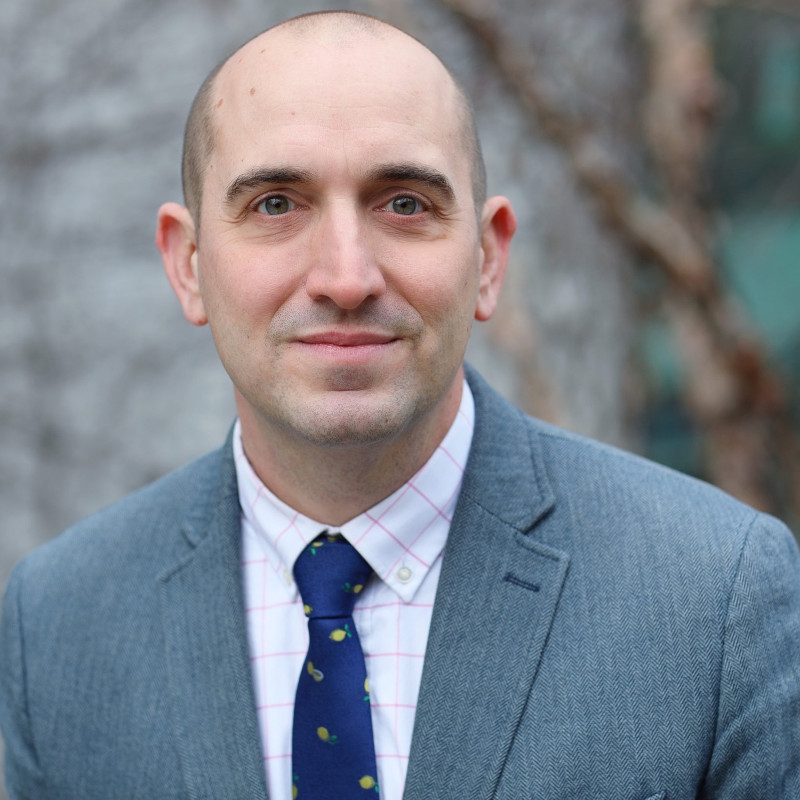Speaker

STEPHEN BECKER
UNIVERSITY OF CINCINNATI. UNITED STATES
Stephen P. Becker, PhD, is Professor of Pediatrics, Endowed Chair, Associate Division Director-Research, and Co-Director of the Center for ADHD in the Division of Behavioral Medicine and Clinical Psychology at Cincinnati Children’s Hospital Medical Center and the Department of Pediatrics at the University of Cincinnati College of Medicine. With funding from the National Institute of Mental Health (NIMH) and the Institute of Education Sciences (IES, U.S. Department of Education), the overall objective of Dr. Becker’s research is to better understand the developmental pathways of ADHD, co-occurring psychopathologies, and functional impairments. Using a developmental psychopathology framework, he is especially interested in cognitive disengagement syndrome, sleep problems, and internalizing psychopathologies which frequently co-occur and interact with, and impact the presentation and treatment of, ADHD across the life span.
Dr. Becker has authored over 250 publications and recently edited a book on ADHD in adolescence (Guilford Press). Dr. Becker is also committed to training and mentorship, and to advancing inclusive practices to support researchers, clinicians, and clinical and research populations in the study and care of ADHD.
Cognitive disengagement syndrome: State of the research and clinical implications (KEYNOTE ADRESSE)

Cognitive disengagement syndrome (CDS), formerly known as sluggish cognitive tempo, has emerged as a distinct constellation of symptoms characterized by excessive daydreaming, mental confusion, and hypoactivity. Once considered a subset of attention-deficit/hyperactivity disorder (ADHD), research over the past several decades has demonstrated that CDS is empirically separable from ADHD and other psychopathologies, while also predicting unique patterns of functional impairment. Recent international consensus has adopted the CDS terminology to more accurately reflect the construct and reduce the stigma associated with its prior label. This presentation synthesizes the current state of CDS science, drawing on findings recently summarized by an international work group organized and led by Dr. Becker. Evidence to date highlights robust psychometric progress in CDS assessment, with a 15-item set consistently demonstrating structural validity across diverse populations. CDS is associated with socioemotional difficulties, academic underachievement, sleep disturbance, and heightened risk for depression and suicidality, underscoring its clinical relevance. Yet, many questions remain unanswered regarding its etiology, neurobiological underpinnings, developmental trajectory, and optimal placement within psychiatric nosology—as a disorder, diagnostic specifier, or transdiagnostic dimension. Looking forward, advancing CDS research requires methodological innovation, culturally diverse samples, longitudinal designs, and greater integration across cognitive, biological, and psychosocial domains. Participatory approaches that incorporate lived experience are also critical for refining measurement, guiding intervention, and ensuring the construct reflects those most affected. By charting these directions, the field can move beyond debates over nomenclature to establish a rigorous, collaborative science that supports recognition of CDS and improves outcomes for individuals who experience it.
Sleep in children and adolescents with neurodevelopmental disorders (Simposium)

Sleep plays a critical role in neurodevelopment, impacting cognitive, emotional, and behavioral functioning. Disruptions in sleep and circadian function are commonly observed in neurodevelopmental disorders such as ADHD, autism spectrum disorder (ASD), and other learning and behavioral disorders. Understanding sleep disturbances in neurodevelopmental disorders requires a multifaceted approach that integrates multi-disciplinary perspectives. Future research should explore the intersection of circadian rhythms, sleep quality, and environmental factors in shaping neurodevelopmental outcomes, while randomized controlled trials are needed to further validate intervention efficacy. This symposium highlights the critical intersection between sleep and neurodevelopmental disorders, with a focus on sleep difficulties in neurodevelopmental disorders such as ADHD and autism, emphasizing the importance of targeting sleep disturbances to enhance developmental outcomes and improve overall well-being.












